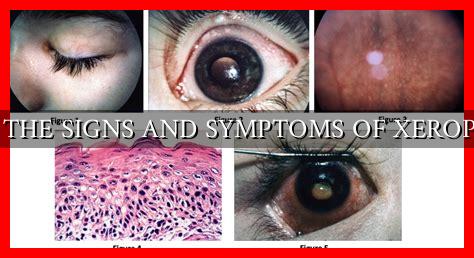-
Table of Contents
What are the Signs and Symptoms of Xerophthalmia
Xerophthalmia is a condition characterized by dry eyes due to a deficiency in vitamin A. It is a serious condition that can lead to vision impairment and even blindness if left untreated. Recognizing the signs and symptoms of xerophthalmia is crucial for early detection and intervention. In this article, we will explore the common signs and symptoms of xerophthalmia and discuss the importance of seeking medical attention promptly.
Signs and Symptoms
The signs and symptoms of xerophthalmia can vary in severity depending on the stage of the condition. Some of the common signs and symptoms include:
- Dryness and irritation in the eyes
- Redness and inflammation of the conjunctiva
- Night blindness
- Corneal ulcers
- Corneal scarring
These symptoms can progress rapidly if not addressed promptly, leading to irreversible damage to the eyes and vision loss.
. It is essential to be aware of these signs and seek medical attention if you experience any of them.
Importance of Early Detection
Early detection of xerophthalmia is crucial for preventing long-term complications. Vitamin A deficiency is a leading cause of preventable blindness in children worldwide. According to the World Health Organization, an estimated 250,000 to 500,000 children become blind every year due to vitamin A deficiency.
Regular eye exams and a balanced diet rich in vitamin A can help prevent xerophthalmia and other eye conditions. If you suspect that you or your child may have xerophthalmia, it is important to consult an eye care professional for a proper diagnosis and treatment plan.
Case Study
One notable case study is that of a young child in a developing country who presented with night blindness and dry eyes. Upon examination, the child was diagnosed with xerophthalmia due to severe vitamin A deficiency. With timely intervention and vitamin A supplementation, the child’s symptoms improved, and vision loss was prevented.
This case highlights the importance of early detection and treatment of xerophthalmia to prevent irreversible vision impairment.
Conclusion
Xerophthalmia is a serious condition that can have devastating consequences if left untreated. Recognizing the signs and symptoms of xerophthalmia is essential for early detection and intervention. By seeking medical attention promptly and addressing vitamin A deficiency, the risk of vision impairment and blindness can be minimized.
Remember, your eyes are precious, and taking care of them is crucial for maintaining good vision and overall health. If you experience any of the symptoms mentioned above, do not hesitate to consult an eye care professional for a thorough evaluation and appropriate treatment.





